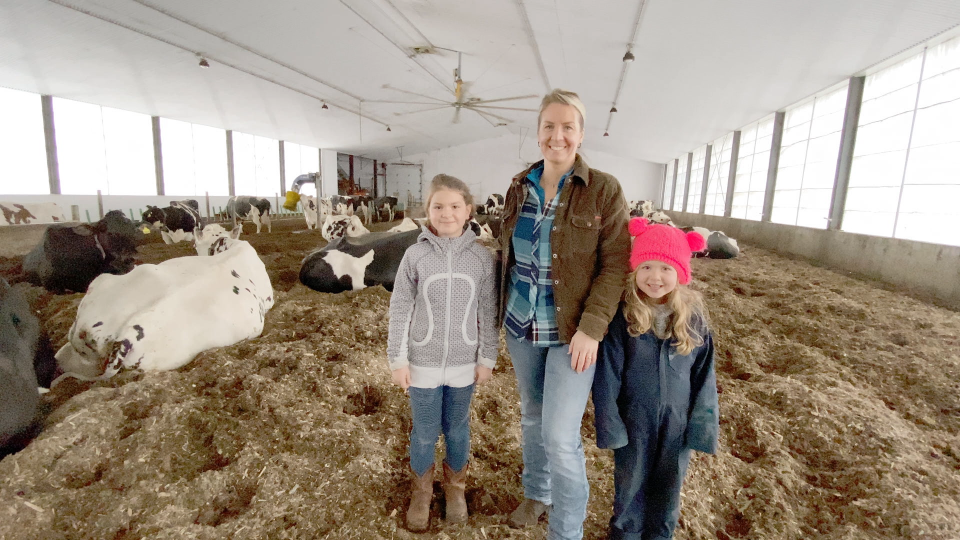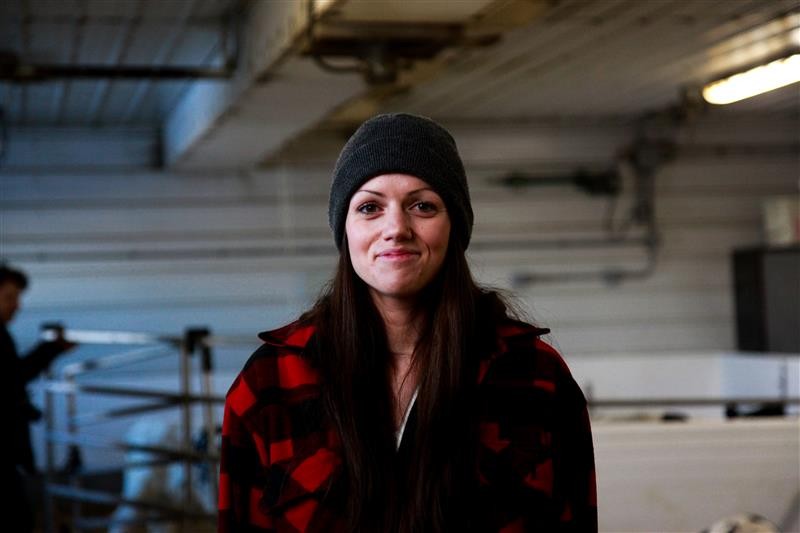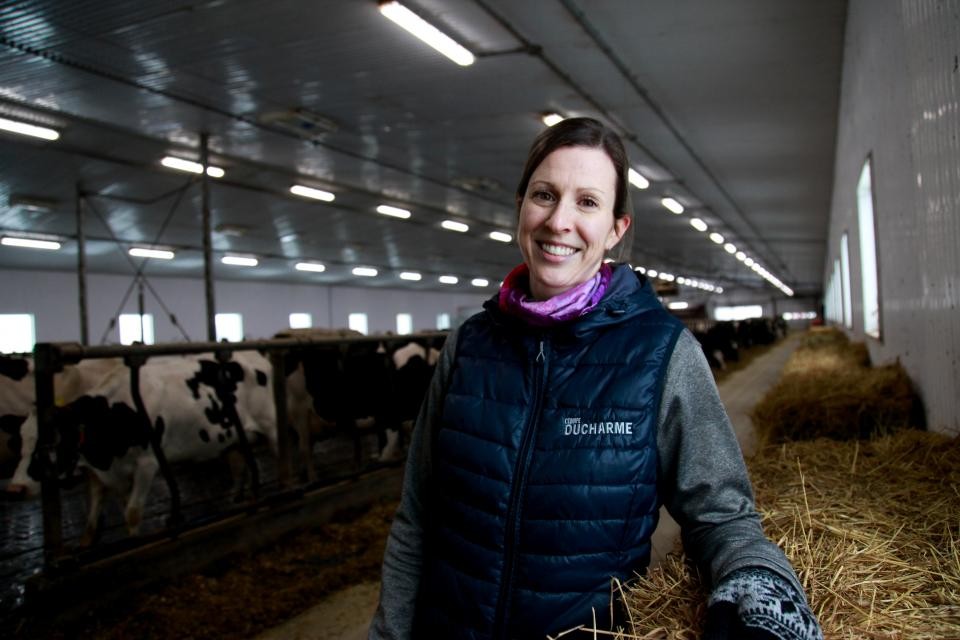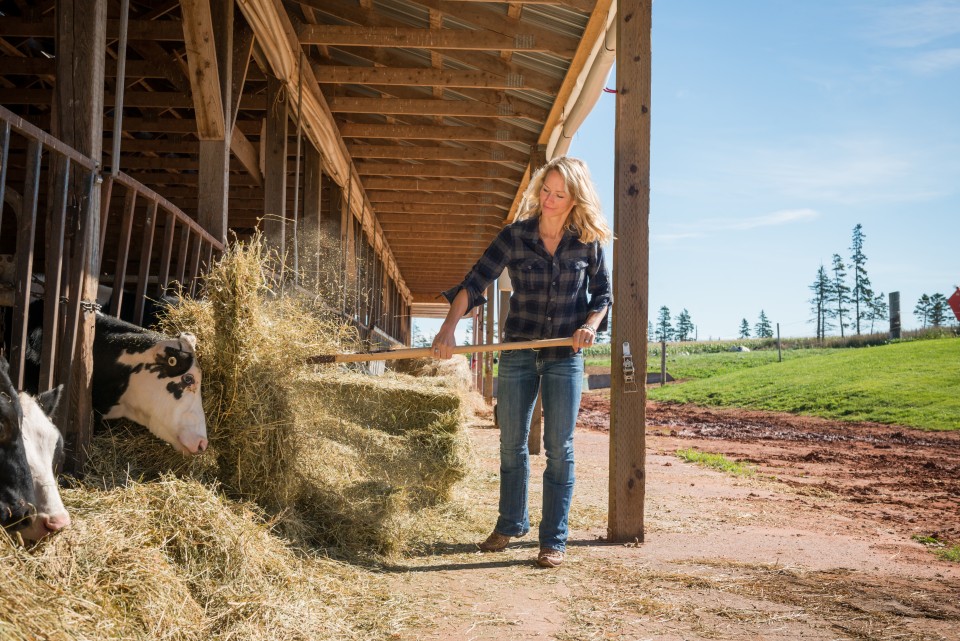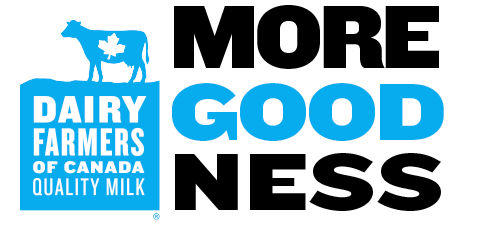Highlights
- Celebrating women dairy farmers from coast to coast.
- Interview with inspiring women Canadian dairy farmers.
Every March 8th, the global community comes together to acknowledge and celebrate the social, economic, and political achievements of all women on International Women’s Day.
Every day is a new opportunity for women dairy famers to challenge themselves and the industry, to bring about the change they want to see.
In keeping with the spirit of celebrating the contributions of our peers, we sat down with these outstanding women dairy farmers to learn how they are inspiring tomorrow’s agricultural leaders.
Marianne den Haan (MDH)
Marianne is an Ontario dairy farmer and former teacher. She holds a B.A in Geography and a B.Ed. from Nipissing University. She has over 15 years of industry experience.
Julaine Treur (JT)
Julaine is a British Columbian dairy farmer who operates her farm along with her family. She has several years of experience in the pharmaceutical sector and has over 15 years of industry experience.
Q: Why did you decide to become a dairy farmer?
JT: “It is a profession which I took on naturally. I became more involved on the farm and soon realized that I was a dairy farmer. It was not a career choice that was determined based on a single experience. Caring for animals on my family’s hobby farm helped me develop a deep love for cows and the agricultural industry in Canada. Therefore, I have always felt confident that agriculture was my true calling.”
MDH: “After teaching for a couple of years, I still had this burning desire for something more. I wanted to take on a project with more entrepreneurial challenges. Opening our family dairy farm fulfilled that objective but also presented us with the opportunity to establish a legacy. This entrepreneurial venture meant that the next generation of farmers would have a home and the chance to work on the farm full time.”
Q: What advice would you offer to other young women entering the dairy industry?
JT: “It is important to be true to yourself. Do not try to fit into the mold of what you think a dairy farmer ought to be or look like. Everyone brings his or her strengths, knowledge, and abilities to the job. Your strengths may be different from someone else, but that does not mean they are any less valuable.”
MDH: “Learn from others in the community. Always be open to innovation and technology. Implement efficient processes to help your business be successful.”
Q: How do you advocate for Canadian agriculture?
JT: “There is a need for farmers to connect with consumers. Only a tiny percentage of Canadians actively farm and even fewer have a connection to the agricultural industry. This disconnect creates an environment in which myths and misconceptions about the agriculture industry can flourish and spread. Therefore, I actively share information on social media, write blogs, and offer candid public pictures about life on our farm.”
“Farmers care about the profession. We care about our cows, our land, the environment, and we are committed to the implementation of ethical production practices. Our cows are important to us. We have an emotional connection with these animals, and we truly enjoy spending our days with them.”
MDH: “I am proud of our heritage and confident in the future of our industry. I make sure to share my expertise and knowledge about our industry with my peers and other consumers.”
“I wish everyone understood how food arrives from the farm to the consumer’s table. Many tasks and processes must be done so that consumers can enjoy milk with their cereal or consume other nutritious dairy products. It is important that we make an effort to regain our connection to the food we consume.”
Q: What types of challenges have you encountered as a women dairy farmer and how have you overcome them?
JT: “I have not encountered any specific challenges in the industry due to my gender. My contributions are always encouraged and supported by my peers. It is the value of what I bring to the industry and not my gender, which has shaped my experiences. Thus, I am thankful for the support and encouragement of the men and women in the dairy industry.”
MDH: “Establishing a proper work-life balance can be difficult, and everyone needs to know their limits. I went back to work two days after giving birth, and that was challenging. Raising a family while operating a business requires a lot of discipline and flexibility. It can also mean bringing your children to work with you. However, it helps to be in touch with how you are feeling daily because mental health is a priority for us all.
Q: What is the most rewarding part of being a dairy farmer?
JT: “Dairy farming is both exciting and rewarding. There are several things, which make this profession fulfilling. Watching a calf being born and taking its first few steps still gives me goosebumps. Hearing our children expressing a desire to follow our example and showing an interest in what we do. Those are some of the most heartwarming parts of this profession.”
MDH: “There is nothing more rewarding than going to bed and knowing you have accomplished a long list of tasks. Some days are tough. Farming is a lifestyle that can cause many breakdowns and one that can cause a high degree of stress because of factors you cannot control like the weather. You have to accept those hard days, but remember that you can overcome them.”
